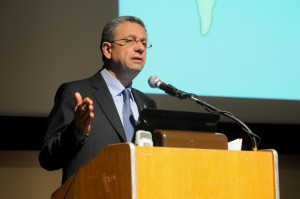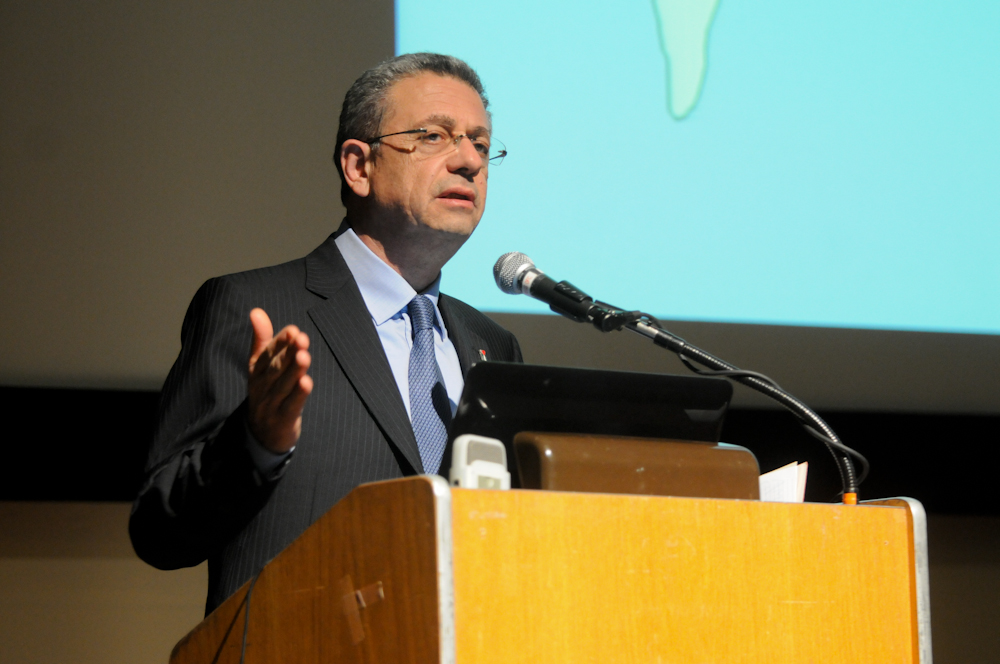
Mustafa Barghouti, doctor and former Palestinian presidential candidate, endorsed a peaceful means to end the Israeli-Palestinian conflict when he spoke Monday evening at a Students for Palestinian Equal Rights (SPER) presentation titled, “The Voice of Palestinian Civil Society: A Call for Non-Violent Resistance.”
Barghouti, an alumnus of the Stanford Graduate School of Business, founded the Union of Palestinian Medical Relief Committees, a healthcare organization serving the Gaza Strip and West Bank. He was a candidate to succeed Yasser Arafat as the Palestinian Authority president until his arrest by Israeli soldiers. Barghouti still received 19.8 percent of the vote in 2005.
Barghouti advocated through his talk for a peaceful means to end the Israeli-Palestinian conflict, giving accounts from a Palestinian perspective. He recounted stories of trying to break through the Israeli naval blockade in the Gaza Strip to provide medical services.
SPER is a student group best known for its calls for divestment from Israeli companies committing human rights violations in Israel settlements. Barghouti spent much of his speech discussing his view on these violations, which many on the Israeli side of the conflict refute.
“I am sure, there is much discomfort when Israelis hear the word apartheid,” Barghouti said, referring to an accusation SPER and others level at Israeli treatment of Palestinians.
“If I was an Israeli, I would feel discomfort, too,” he said.
Barghouti addressed the plight of the Palestinians, describing to the audience how Palestinians are frequently humiliated at Israeli border crossings on their way to work. One of the slides he presented showed men jammed into a metal turnstile gate as they made their way to work.
Barghouti reminded the audience that students, not just adult workers, also face a daily border crossing into Israel for school. To make it through the gates on time, Palestinians are forced to arrive at 4 a.m. on an average day.
The separation itself, according to Barghouti, is oppressive for many Palestinians.
“I am forbidden from entering the city I was born in,” he said, referring to Jerusalem.
Barghouti showed the audience several videos depicting graphic scenes. One showed Israeli soldiers using bullets to clear out a building in order to send in a military police dog that attacked an unarmed woman, while another showed soldiers beating a young man at an Israeli-Palestinian checkpoint.
“We are not respected by Israel,” Barghouti said, while continuing to advocate for a non-violent approach to solving the conflict.
Barghouti also referenced Hana al-Shalabi, a Palestinian woman placed in an Israeli prison, who is currently approaching day 19 of her hunger strike.
In addition, Barghouti called for boycotts to stimulate change in global opinion toward Israel. He referred to the Arab Spring revolutions as a model for inciting change in the oppression of Palestinians through nonviolent protest.
